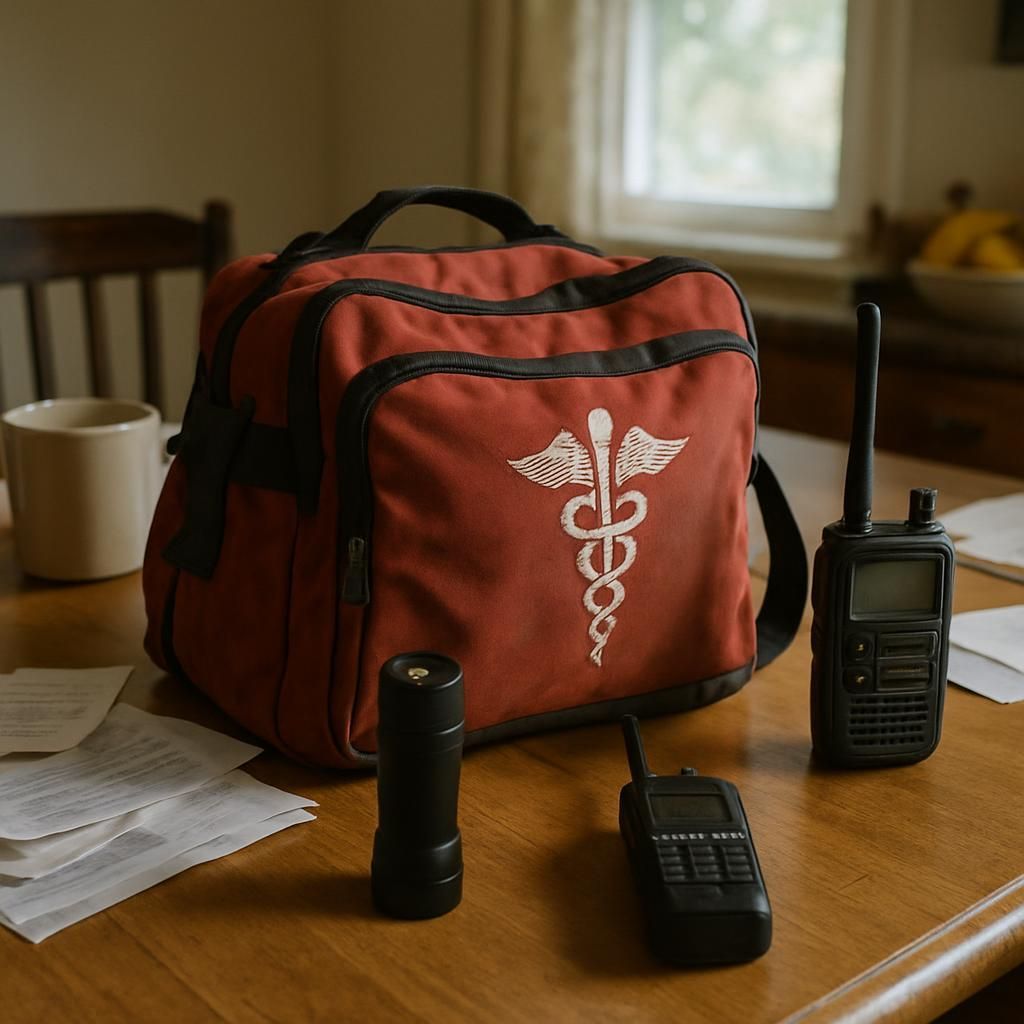Mental Health Crisis Services
Suicide Crisis
Resources
Oakland County
Crisis Line
Wayne County
Crisis Line
Macomb County
Crisis Line
Suicide Prevention Hotline
Michigan Safe, Healthy Communities
Feeling overwhelmed or struggling with a mental health crisis can be scary and confusing. At CNS Healthcare, Crisis Services are available to provide immediate support for those facing emotional distress or psychiatric emergencies. This post explains how CNS Healthcare helps existing persons-served through 24/7 crisis care and introduces the upcoming Behavioral Health Urgent Care, launching October 1, for extended-hour assistance. Help is here when you need it most—read on to learn more about the options available to you!
Key Takeaways
- CNS Healthcare offers 24/7 crisis intervention for persons-served and will launch Behavioral Health Urgent Care with extended hours on October 1.
- During a crisis, you can call the free 988 Suicide & Crisis Lifeline or text "Start" to 741-741 for confidential support anytime.
- Crisis Teams provide help at home or in the community, focusing on stabilization without needing an ER visit.
- Local resources like Detroit Wayne Integrated Health Network (DWIHN) and Common Ground offer specialized mental health services in Michigan.
- Signs of crises include severe sadness, suicidal thoughts, panic attacks, or hallucinations; quick action by calling hotlines or visiting Behavioral Health Urgent Care saves lives.
What to do in a moment of crisis
It’s crucial to act quickly and stay calm during a mental health crisis. Help is available, and taking these steps can make a difference.
- Call, text, or chat the 988 Suicide & Crisis Lifeline for immediate help. It’s free and available 24/7. Trained counselors will talk to you.
- Text "Start" to 741-741 if you need quick support but cannot talk on the phone. This service is confidential and free.
- Visit an emergency room if someone’s life is in danger or call 911 for immediate medical help. Be clear about it being a psychiatric emergency.
- Contact local community resources like Detroit Wayne Integrated Health Network or Common Ground for specialized crisis services near Wayne or Oakland County.
- Reach out to CNS Healthcare if you're already receiving services there. They have 24/7 on-call crisis intervention support for their persons-served.
- Stay with the person in crisis if it’s safe to do so. Show empathy, listen calmly, and avoid judgmental comments.
- Remove items that could be used for self-harm, such as sharp objects or medications, from the area until professional help arrives.
Who CNS Healthcare serves and how our model works
CNS Healthcare supports over 8,600 people each year. You can access services if you live in Wayne, Oakland, or Macomb County or nearby areas. The sliding fee scale makes care affordable, even for those with lower incomes.
Trained professionals and support staff offer mental health crisis services customized to your needs.
Current persons-served have 24/7 access to emergency help through crisis intervention services. Starting October 1, Behavioral Health Urgent Care will open for extended hours at select sites.
This service closes the gap between outpatient care and hospital visits for urgent mental health needs.
Understanding Mental Health Crises
Mental health crises can feel overwhelming, but knowing the right steps to take and support options available can make a difference; read on to learn more.
The difference between crisis, urgent care, and emergency services
Crisis services focus on immediate emotional support and stabilization. These are for situations like intense distress, severe anxiety, or thoughts of suicide. Crisis teams provide face-to-face or virtual help around the clock.
They aim to keep you safe and connect you with ongoing care.
Urgent care handles mental health needs that can’t wait for a regular appointment but aren’t life-threatening. Starting October 1, CNS Healthcare will offer Behavioral Health Urgent Care with extended hours.
This is for issues like worsening symptoms of anxiety or depression.
Emergency services deal with life-threatening conditions requiring hospital visits. Examples include harm to yourself or others or severe psychiatric emergencies needing intensive treatment in an emergency room setting.
Always call 911 if someone’s safety is at risk immediately!
Common signs of emotional distress and psychiatric emergencies
Emotional distress and psychiatric emergencies can happen to anyone. Knowing the signs helps you take action early or get immediate help.
- Intense feelings of sadness, hopelessness, or guilt that don’t go away may signal depression. These emotions might affect daily life and relationships.
- Sudden changes in mood or behavior, like extreme anger or irritability, can show emotional instability. Pay attention if these shifts are severe or unexplained.
- Feeling overwhelmed by stress from family issues, work pressure, or domestic violence increases mental health risks. Seek support if it becomes hard to cope alone.
- Talking about death, expressing thoughts of self-harm, or attempting suicide indicates a serious emergency requiring immediate help from crisis services like 988 Suicide & Crisis Lifeline.
- Experiencing delusions or hearing voices is a common symptom of severe mental illness, such as schizophrenia, often needing urgent care.
- Sudden withdrawal from loved ones and everyday activities may be a sign of deep emotional pain requiring support groups and professional counseling.
- Panic attacks with chest pain, rapid breathing, and sweating could feel overwhelming but are treatable with trained crisis counselors.
- Substance abuse often overlaps with emotional distress and can worsen psychiatric conditions without proper care from service providers specializing in treatment.
- Excessive fear or anxiety about public safety situations might indicate heightened trauma response following an event like domestic violence.
- Difficulty concentrating at work or school could reflect poor mental wellness needing behavioral health services for evaluation.
Immediate help is crucial when these signs appear severe or life-threatening!
When to call the 988 Suicide & Crisis Lifeline or visit a hospital
In a mental health crisis, quick action can save lives. Knowing when to call or seek help is key.
- Call the 988 Suicide & Crisis Lifeline if you feel hopeless, trapped, or overwhelmed by suicidal thoughts. It offers free and confidential support 24/7.
- Dial 988 if you or someone else shows signs of self-harm, severe anxiety, or panic attacks that won’t stop.
- Visit a hospital emergency room for severe psychiatric emergencies like hallucinations, violence toward others, or inability to care for yourself.
- Use 988 Suicide and Crisis Lifeline when a loved one threatens suicide and immediate guidance is needed.
- Go to the ER if physical harm has already occurred due to self-harm, overdose, or violent actions. Medical attention must come first in these cases.
- Contact the line for emotional distress after a traumatic event like losing a loved one unexpectedly or experiencing abuse.
- Seek help if depression causes you to isolate yourself completely from friends and family members with no plan to reconnect soon.
- Call for support when strong feelings of worthlessness or guilt take over your thoughts daily and seem impossible to manage alone.
- Emergency rooms are ideal for crises involving severe symptoms caused by mental illnesses that require urgent psychiatric stabilization.
- Never wait if danger feels close; whether it’s calling 988 Crisis Support Services or going straight to an ER near Oakland County ensures safety instantly!

CNS Healthcare Crisis Services
CNS Healthcare offers immediate help for those in emotional distress or a mental health crisis. These services provide support to individuals already receiving care, ensuring they feel safe and heard during tough times.
Crisis intervention services for current persons-served
You can access crisis intervention services anytime, day or night, if you're already receiving care. These include 24/7 on-call support and walk-in assessments during office hours.
You will get immediate help through face-to-face or virtual appointments to stabilize your mental health.
Starting October 1, Behavioral Health Urgent Care will expand services. This new option offers extended hours for urgent situations that don't need emergency room visits. It bridges the gap between outpatient care and emergencies, giving you faster access to treatment when you need it most.
24/7 on-call availability for walk-ins and scheduled clients
CNS Healthcare offers 24/7 on-call support for those in need of immediate mental health care. Walk-in assessments are available during office hours, providing quick help when you arrive without an appointment.
Scheduled clients can also count on this round-the-clock service to address urgent concerns.
This constant availability ensures you have access to help whenever needed. Whether facing emotional distress or needing crisis stabilization, trained professionals are ready to assist.
These services are currently for existing persons-served, with extended-hour Behavioral Health Urgent Care launching October 1 for added support at select locations.
Immediate crisis stabilization and emotional support
Immediate crisis stabilization provides urgent help during mental health emergencies. You can access face-to-face or virtual appointments to create a safe and supportive plan. These services connect you with resources like local hospitals, ambulance teams, or domestic violence shelters when needed.
Starting October 1, the new Behavioral Health Urgent Care will offer extended hours at select locations. It helps address urgent mental health needs without requiring hospital visits.
This service is different from long-term outpatient care as it focuses on immediate support to stabilize emotions and restore safety quickly.
Collaboration with community mental health providers
CNS Healthcare works closely with community mental health providers to expand support. Partnerships include hospitals, local police, and ambulance services for effective crisis care.
These collaborations ensure you get the right help quickly.
By working together, your needs can be met through resources such as crisis stabilization units or mobile crisis teams.
This network of services is designed to give you comprehensive and timely support during a mental health emergency.

Partner Organizations and Community Resources
CNS Healthcare works with trusted local organizations to connect you to extra support and resources. Learn how these partnerships can help meet your needs.
Wayne County resources
Detroit Wayne Integrated Health Network (DWIHN) provides many mental health services. They work with Wayne with community programs to support those in need across the region. Detroit Wayne Integrated Health Network (DWIHN) offers a range of peer supports, and treatments.
Their programs are designed to help families and individuals dealing with urgent mental health situations or long-term conditions. DWIHN also collaborates with organizations like crisis helplines and mobile units to deliver care where it’s needed most.
Oakland County resources
There is help available in Oakland counties for mental health crises. These resources can give you support when you need it most.
- Call the 24-Hour Crisis Line at 800-231-1127 in Oakland County for immediate help. Trained staff are ready to assist you anytime.
- Common Ground provides crisis services to residents in Oakland and surrounding areas. They offer emotional support, housing assistance, and follow-up care.
- Michigan 2-1-1 is a free service connecting you with public health and human services in your area. Dial 211 or visit their website to find local care homes or emergency departments near you.
- Mobile crisis services are available through certified teams that come directly to your home or community location if needed.
- If you're unsure who to call, reach out to the National Suicide Prevention Lifeline at 988 anytime for confidential support.
Help in these counties ensures no one faces a crisis alone. Take action now by contacting one of these trusted resources!
Macomb County resources
There is help available in Macomb and County for mental health crises. These resources can give you support when you need it most.
- In Macomb County, contact the 855-927-4747 hotline. This free crisis hotline connects you with professionals who offer guidance and support.
- Michigan 2-1-1 is a free service connecting you with public health and human services in your area. Dial 211 or visit their website to find local care homes or emergency departments near you.
- If you're unsure who to call, reach out to the National Suicide Prevention Lifeline at 988 anytime for confidential support.
Help in these counties ensures no one faces a crisis alone. Take action now by contacting one of these trusted resources!
Common Ground
Common Ground provides crisis services in Oakland County. They help people facing mental health emergencies. Their 24-hour Crisis Hotline offers free, confidential support. You can also visit their Crisis Center for immediate help.
They work to connect you with the right resources quickly.
Michigan 2-1-1 and National Alliance directories
Michigan 2-1-1 connects you to tools for health, safety, and basic needs. You can call or search online anytime to find crisis services, housing help, food programs, or mental health support close to home.
The service is free and confidential.
The National Alliance on Mental Illness (NAMI) provides directories that list local resources for mental health care. These include therapy options, peer-led groups, and education programs.
Both tools make it easy to get quick access to the help you need in Oakland County.

Certified Crisis Response Teams
Crisis response teams provide immediate help when you face a mental health crisis. These trained professionals come to your home or community to offer support and care during tough times.
Mobile Crisis Team and Mobile Crisis Unit availability
CNS Healthcare offers immediate help during mental health crises.
- We have clinicians on call 24/7 to respond to urgent mental health situations. This service is available for individuals currently served by CNS Healthcare.
- Trained crisis counselors and certified peer support specialists are part of the team. They offer emotional support, assessment, and guidance.
- CNS works with partners to offer Mobile Crisis Help.
- Services include crisis stabilization and connection to ongoing care. These prevent the need for emergency room visits in non-life-threatening cases.
- The team also works closely with Detroit Wayne Integrated Health Network (DWIHN) and other community providers for additional resources if required.
- Support is available virtually or face-to-face, depending on your situation and needs.
- For broader access outside CNS services, Michigan laws enable residents to call 988 for the Suicide & Crisis Lifeline anytime.
Support is near you, ready when you're ready to ask for it!
Role of trained crisis counselors and certified peer support specialists
Trained crisis counselors provide immediate support during tough times. They help calm strong emotions, guide you to safety, and connect you with the right resources. Their expertise ensures fast and thoughtful care for mental health emergencies.
Certified peer support specialists have lived through similar struggles. They offer understanding and practical advice based on personal experience. Their role is key in showing that recovery is possible while giving hope during crises.
Together, both professionals work to make sure you feel heard and supported at every step of your journey.
How mobile crisis services help in the home or community setting
Mobile crisis services bring help to your doorstep. Teams visit homes or community locations where support is needed most. They provide fast care, easing stress for you and others involved.
Counselors listen, calm emotions, and offer tools to handle the situation. This approach builds trust in a place where you feel safe. By meeting you where you are, they reduce trips to clinics or hospitals, keeping care simple and local.

Suicide Prevention and Confidential Support
You can get 24/7, private support from trained crisis counselors who truly care—explore ways to find help now.
988 Suicide and Crisis Lifeline
Call 988 if you feel overwhelmed, hopeless, or in danger of self-harm. The 988 Suicide and Crisis Lifeline is free and open to everyone. You can talk to trained counselors who listen and help without judging.
If speaking feels too hard, text "Start" to 741-741 for instant support.
This lifeline runs all day and night, offering help during tough moments. It connects people in Oakland County with skilled professionals who care. Use it for yourself or a loved one facing urgent emotional distress or a mental health emergency.
24-hour crisis hotlines and helplines
You can get help anytime, day or night. 24-hour hotlines and helplines are ready to support you during tough times.
- Dial 988 for the Suicide & Crisis Lifeline if you're feeling hopeless or overwhelmed. Trained counselors will listen and guide you through the situation.
- Oakland County residents can call 800-231-1127 for local mental health crisis services. This line connects you to immediate help in your community.
- Wayne County offers a crisis hotline at 800-241-4949. Reach out if you're nearby and need assistance quickly.
- Michigan 2-1-1 helps connect callers to free, confidential support services statewide. They provide information on mental health resources near you.
- Many hotlines also offer text and chat options for those who find it easier to write than talk aloud. Check individual service websites for these details.
- All calls are private, so you can share openly without fear of judgment or disclosure. These services focus on keeping you safe first.
- Whether it's emotional distress, suicidal thoughts, or just needing someone to talk to, crisis lines save lives by providing quick access to professionals who care deeply about helping others like you live healthier lives each day.
Peer-led support groups and follow-up programs
Peer-led support groups and follow-up programs offer connection and guidance. These services provide a safe space for healing and continued care.
- Peer-led support groups let you share experiences with others who understand mental health struggles. Group leaders are trained peers who have faced similar challenges.
- These groups focus on building trust, offering encouragement, and sharing coping tools. They help reduce feelings of isolation by creating a sense of community.
- Follow-up programs ensure you stay supported after a crisis or treatment session. These services may include check-ins, connecting to resources, or scheduling ongoing therapy.
- Many peer-led programs are free and confidential to make them accessible to everyone in need of help.
- The goal of these groups is long-term recovery, emotional growth, and reducing the chance of future crises.
- Support group options often address specific needs, like anxiety, depression, or trauma recovery for adults in Oakland County.
- Trained peers can guide you toward creating a stable plan for handling stress or seeking further care when needed.
- Programs like this connect with wider networks such as Michigan 2-1-1 or local organizations for extra support.
- Peer involvement builds trust while encouraging open conversations about mental health without judgment or stigma.
- Services like peer-follow-ups also link participants to helpful directories such as the National Alliance resources or county-based options nearby your community.

Planning for Future Episodes of Crisis
Making a plan can help you feel more prepared for tough moments. It also lets others know the best ways to support you in those times.
Developing a voluntary Crisis Intervention Plan (CI Plan)
A Crisis Intervention Plan (CI Plan) helps you prepare for future mental health crises. It is voluntary and created with your input. At CNS Healthcare, the plan starts during intake and gets reviewed every year.
Your case manager works closely with you to keep it updated as your needs or goals change.
The CI Plan includes key details about your preferences if a crisis happens. You can outline who to contact first, strategies that calm you down, and steps for support. Having this plan in place eases stress during hard times and ensures fast action when needed.
Psychiatric Advance Directive (PAD): understanding your rights and preferences
A Psychiatric Advance Directive (PAD) helps you plan your mental health care. It allows you to state how you want to be treated during a crisis. You can include preferences for medications, therapies, or hospital stays.
With a PAD, family members and providers know your needs in advance. This document is voluntary but legally respected.
Creating a PAD ensures your voice is heard even if you're unable to decide during an emergency. Talk with trusted people like family or case managers about choices that matter most to you.
Share the completed PAD with service providers for easy access when needed. Having this plan gives peace of mind and better coordination of future care options.
How family members and case managers can help coordinate care
Family members can share important insights about the individual’s needs and preferences. This helps in creating a stronger Crisis Intervention Plan (CI Plan). Staying involved allows you to support updates whenever changes occur in the person’s situation.
Case managers play a key role by helping with communication between families and healthcare providers. They ensure everyone is on the same page for better care coordination. You can also use tools, like virtual care portals, to easily request appointments or stay informed about progress.
Regular reviews of plans involving family input keep care personalized and effective over time.
Coming Soon: Behavioral Health Urgent Care at CNS Healthcare (October Launch)
Starting in October, CNS Healthcare will launch Behavioral Health Urgent Care to provide faster mental health support. This new service will help with urgent needs that don’t require hospital care, offering more options for your well-being.
What is Behavioral Health Urgent Care and who it’s for
Behavioral Health Urgent Care is for people needing fast mental health support without going to the ER. It gives immediate help to those feeling overwhelmed, stressed, or emotionally unwell.
This service connects with CNS Healthcare and starts in October at select locations.
It is perfect for non-life-threatening situations that still need quick attention. You can walk in during extended office hours for an assessment and care plan. Services focus on urgent needs but do not replace long-term treatment or emergency care when hospitalization is required.
Extended office hours and walk-in options
CNS Healthcare offers extended office hours to make mental health care more accessible. You can walk in during these times for an assessment or support without a prior appointment.
This service is designed to help with urgent mental health needs that are not emergencies.
Starting October 1, Behavioral Health Urgent Care will also be available at select locations. It provides same-day care options outside of hospital settings and regular outpatient visits.
These services focus on quick emotional support and stabilization when immediate help is needed.
What services will be available that differ from ER or long-term care
Behavioral Health Urgent Care focuses on immediate mental health needs, not long hospital stays or emergencies. You can walk in for support without an appointment. Extended office hours will make care more accessible during evenings and weekends.
Trained professionals provide same-day assessments and quick stabilization services. This care is less overwhelming than ER visits yet faster than waiting for outpatient appointments.
It bridges the gap between crisis response and regular therapy sessions.
FAQs
1. What are mental health crisis services?
Mental health crisis services offer free, confidential help to individuals facing urgent emotional or psychological challenges.
3. Can I use Google Translate to access these services if English is not my first language?
Yes, you can use Google Translate to understand information about the available mental health crisis services and get help in your preferred language.
4. Are these services really free and private?
Absolutely, all mental health crisis services are confidential to ensure everyone feels safe seeking help when they need it most.
As a medical provider, CNS Healthcare will bill insurance, but no one will be turned away or denied services if they do not have insurance or the ability to pay.







